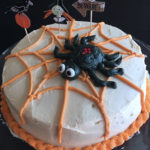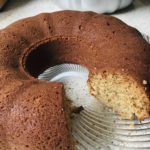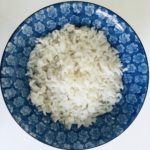
Original painting by Tara Himler
I want to share a correspondence I recently had with a woman named Chanel in Atlanta, Georgia. It really touched me and also brought to my attention a problem that doesn’t get talked about — in fact, it is practically ignored in the celiac community. Chanel has given me permission to use both her story and name because she hopes that others will relate to her story.
Here is the first email I received:
May 7, 2009
“I have read your story and the info on your site. I just want to say, thank you so much for sharing your story and all the helpful information you have made available to the public. My symptoms sound exactly like yours, right down to the vitiligo. I am 26 now and I began having horrible stomach pain when I turned 21. The pain literally started on my birthday. I had symptoms which my doctor diagnosed as IBS aggravated by stress (this was not good news considering I had a very high stress job at the time). He told me there was nothing he could do for me. He said all I could do is try to get my stress level under control, eat more fiber and hope for the best. It was like my concerns were just brushed aside and forgotten. Like my pain didn’t matter to anyone but me. It seemed so unfair.
That summer I took up meditation in an attempt to get my obsessive compulsive behavior and stress under control. So I sat in the sunshine practicing my deep breathing techniques. This helped a little with the stress… until I started getting spots! As my shoulders began to tan I realized there were spots of my skin that wouldn’t. This fact was not conducive to my stress levels. I lost a lot of weight because the pain was so bad I just couldn’t eat! People thought I had an eating disorder because I was already thin to begin with. Finally the pain and stress was so bad that I had to quit my job.
I tried diets, I tried cutting out dairy, I tried exercise programs (which wouldn’t work because the pain would prevent me from exercising), I tried going back to doctors, I tried food combining, dietitians and books and supplements and everything under the sun!! Nothing worked!! Finally I saw the book, G-Free diet and found your review. I then went to your site and read pretty much everything there. I will be scheduling an appointment to be tested for gluten allergy and Celiac Disease. I have already started the “G-free diet” and have been G-free for about 3 days. I hope this is the answer because I can already tell a difference. I don’t know how long it took for you, but my pain level has already decreased. After 5 years of pain, discomfort, stress and tears, I finally have some hope… Thank You, Thank You, Thank You….”
What a wonderful feeling to get an email like that! After I wiped tears from my eyes, I realized that I should let her know that if she is going to get tested for celiac disease she should NOT be on a gluten-free diet before getting tested because it can produce a false negative result. I asked her if she had insurance and suggested that she get the test for celiac disease right away before she continues with the gluten-free diet. Her reply:
May 8, 2009
“No I do not have insurance. Unfortunately when I left my job for one less stressful, I also left my benefits behind. I am also about to go back to school. I start May 19, so you can imagine how difficult the idea is for me to start eating gluten again. If that is what is causing my problems, I definitely do not want to cause pain that could pull me out of class. For the time being, I plan on staying gluten-free until I can afford to go back to the doctor. I wish I could go tomorrow just to have a definitive answer but for now, I am on the 4th day of being gluten free and so far the pain has decreased every day. I couldn’t believe how good I felt this morning! My boyfriend says it is just good to see me smile again. Thanks!”
When I emailed her a week later to see how she was feeling she replied:
May 17
“I am still G-free and I am still smiling!”
I know how she feels. I know EXACTLY how she feels. When I first read about celiac disease, I knew I had found the answer and went gluten-free that very minute. I called my doctor’s office and told them that I wanted to be tested. The doctor called me back to tell me not to stop eating gluten yet. At that point I had already been gluten-free for a few days, and like Chanel, already felt better, and knew that I never wanted to eat gluten again. I was lucky that a) I had medical insurance, and b) I was able to see my doctor right away and get the tests, because if those two things hadn’t happened, I’m not sure I would have ever tested positive for celiac disease. I was not about to eat gluten again — it simply hurt too much.
I always tell people they should get the celiac blood test, but clearly there are cases where this is difficult for the person financially. My cousin ended up paying $500 out of pocket for the celiac panel for her daughter (which turned out to be negative despite her many health problems). I have received many emails from people without insurance asking for help because they are sick and want to try the diet.
There aren’t many options that I know of for people who can’t afford the testing. The Celiac Disease Foundation didn’t have any suggestions for me on the phone when I inquired about testing options for people without insurance. The National Foundation for Celiac Awareness suggested that there are sometimes free screenings like at the University of Chicago Celiac Disease Center. This is a good option, if one can get to Chicago on that particular day of the year. They also suggested contacting the closest celiac support group to see if they know of any opportunities offered through local health care providers. This is a good idea if such programs exist, if they are convenient, if the person would have any way of knowing about them and if they are running at the time the person is seeking testing.
Unfortunately, without that celiac test, many people are not given credibility for choosing to be on a gluten-free diet, even if it is for health reasons. People like Chanel are not doing it to follow a fad, or to lose weight (many are actually trying to gain weight). They are doing it because they are sick, and they are sick of being sick.
And yet, although they are dedicated to the diet, they feel left out of support groups, conferences, etc. because they were never diagnosed with celiac disease. (I have received many emails telling me this.)
So, please — doctors, relatives, friends, colleagues — don’t hold it against Chanel and others like her that they are not officially “celiac.” Understand that the world of celiac testing is not perfect and not available to everyone. Believe them when they say they feel better being gluten-free. Welcome them into your support groups, include them in your research and your causes, and most importantly, share with them your gluten-free love!
Thank you, Chanel, for your story. I hope you continue to feel better!







Erin says
what an inspiring post!
stories like these truly make blogging efforts worth every ounce of time 🙂
Sandy says
Of importance too for people getting tested for celiac/gluten intolerance is also to be tested for food allergies. This a recommendation by a physician at the William K. Warren Celiac Research Center at UCSD in San Diego.
The research center may have some knowledge as to where inexpensive testing could be done.
Becoming gluten free is an involved process and it is ever evolving as doctors and scientists learn more. I recommend a good book called, “The Gluten Free Bible” by Jax Peters for a starter.
Linda Simon says
I stopped referring to celiac and simply use gluten intolerance, for this very reason. I also worry about what is offered at food banks and donate gluten free items. I am sure it is not filling the need.
Lacie says
I understand how it feels to be looked at like you are crazy for not eating gluten. Not only from people I don’t know but by family as well.
I have read, in more than one place, that there is testing for gluten allergies, as well as other allergies, that does not require you to be eating gluten to test correctly. They test by taking a stool sample. Though I do not know of the cost. Wholelifenutrition.net, by Tom Malterre and Alissa Segersten, lists a site for a lab in there resource section. The lab site is enterolab.com.
I thought this might be of interest.
Thank you for your very informational site.
Chanel says
Hello everyone! I was so excited to see my story posted. I hope it helps people who do not have to money to get tested for Celiac. I am still gluten free and I am loving life!
I used to wake up with pain and go to sleep with pain. Now I wake up, go to school and feel great all day! I did have one really lousy day when I accidently ate something with gluten in it. This only reinforced my feeling that it had to be the gluten in my diet that was making me sick.
I had a wonderful experience today at the grocery store. My boyfriend and I were talking about what to buy when a woman who worked there named Sherleen asked if she could help us find any Gluten free products. She then shared her story with me. Her son has been Gluten intolerant since the age of 5. But it didn’t cause pain- it caused seizures! She spent 20 min guiding me to every gluten free product they carry and informed me that I was the 4th person that day looking for gluten free guidance! She also told me she was pushing for the store to carry more gluten free products and put a gluten free tag under the price to make them easy to find.
Sean and I immediately went to the manager to sing her praises and to let him know what wonderful ideas she has! He was very receptive and said he would recognize her for her efforts and explained that her ideas would absolutely be implemented!
I am so happy to have found this web site!, and to know that awareness is growing out there and I am not alone. Thank you Alison for all your help!
Amanda Fletcher says
I would like to thank you for posting this story and for acknowleding the discomfort I have about approaching celiac groups and whatnot because I, like Chanel, have never been “officially” diagnosed. Due to that, I usually just say I have a gluten intolerance or something and people are happy enough with that explanation. All I know is that I was sick on and off for over 10 years and was told constantly it’s just IBS, get over your stress. By the middle of last year I was severely underweight and losing my hair. It was at that point where a friend of mine suggested I start going gluten free and, lo and behold, I started to feel better! I’ve gained back almost all of the weight I lost, my hair grew back, and I’m not lying on the floor in my bathroom in intense pain anymore.I’m happy to be eating gluten free and I’m happy that awareness is being promoted and I’m here to say that, for me, it’s far from a fad!
Erika says
If you don’t have insurance you could try seeking out a free clinic in your area. My husband recently went to one in San Francisco and had the Celiac Panel of blood tests given to him completely free of charge!
Megan says
I can see how not having insurance can be an obstacle, but sometimes having insurance can be an obstacle, too. My daughter became a biopsy-confirmed Celiac in Dec. ’07, because her pediatrician happened to order a Celiac panel, along with a bunch of other bloodwork, to “humor” me when I came in insisting that something was wrong with her. Bloodwork came back positive, we had a biopsy, and she was confirmed.
At the urging of the pediatric GI, my son and I were also tested. My bloodwork came back positive, my son’s came back negative, but with a low serum level, which essentially said that the negative might be a false negative.
I was biopsied and confirmed as a Celiac in May of ’08 (gotta love the way HMO’s don’t hurry about stuff). I didn’t have significant symptoms, just chronic anemia (which every doctor I saw simply attributed to “heavy periods”, even though that wasn’t a problem for me) and a recently-developed pain in my right upper abdomen.
My son, who has been seeing a pediatric GI since he was 18 months old for GERD, and has suffered from constipation since he started on solid foods, was the only one who came up negative. At three, I asked the GI about the possibility of Celiac disease and was dismissed. After the bloodwork, his pediatrician told me he couldn’t have Celiac disease.
Since my son has been small for his age since he was 9 months old and is an extremely picky eater, I wasn’t about to let Celiac go for him. I KNEW it was a problem for him. I went back to his pediatrician and mentioned my concern about his small size. She dismissed me again, even though neither his dad nor I are small, “he’s just going to be a little guy,” she said. I asked to pursue it anyway. She sent us to an endocrinologist, who said nothing was wrong and that Celiac might be a possibility; I should see a GI.
The pediatrician still didn’t want to refer for Celiac, so I circumvented that and said I wanted to see a different GI than the one we saw when he was three to check in on his reflux medication. The GI we saw was the same one who diagnosed my daughter. She said he should absolutely be biopsied; a family history and his other issues were enough cause to warrant a biopsy.
He was scheduled for a biopsy the following day. The doctor who performed it was the doctor he had seen when he was three. He told me before he performed the biopsy that he did not believe that Celiac was my son’s problem, and really seemed to want me to feel guilty for “needlessly” putting him through the procedure he didn’t think was needed.
Guess what? His biopsy was positive and had so much inflammation that the pathologist was unable to rule out other disorders.
He’s been gluten-free for a year now. He has grown and gained weight (although he’s still the smallest kid in his class). His constipation has largely resolved, and he’s generally a much happier kid.
The moral to this long story is this: hang in there and be persistent… and if you can’t get an official diagnosis and a gluten-free diet makes you feel better, then you are on the right track. Go with it.
alison says
Megan,
Wow! Proof that mothers need to trust their instincts and be their own advocates when it comes to their children!
Kelly says
Great article, Alison!
I love how balanced and reasonable you are! Hopefully this will help some people to feel relief and help others to develop some much needed insight into this matter.
Raymond D. Platt says
People with Celiac disease need to adhere to a very strict gluten-free regimen to maintain their health. Making it a fad rather than a medical issue really muddles the water, and gets restaurants and other food producers enter the gluten-free marketplace with very little understanding of the issue. it takes much more than that eliminating wheat flour and pasta from a dish to even cook a gluten-free meal at home.